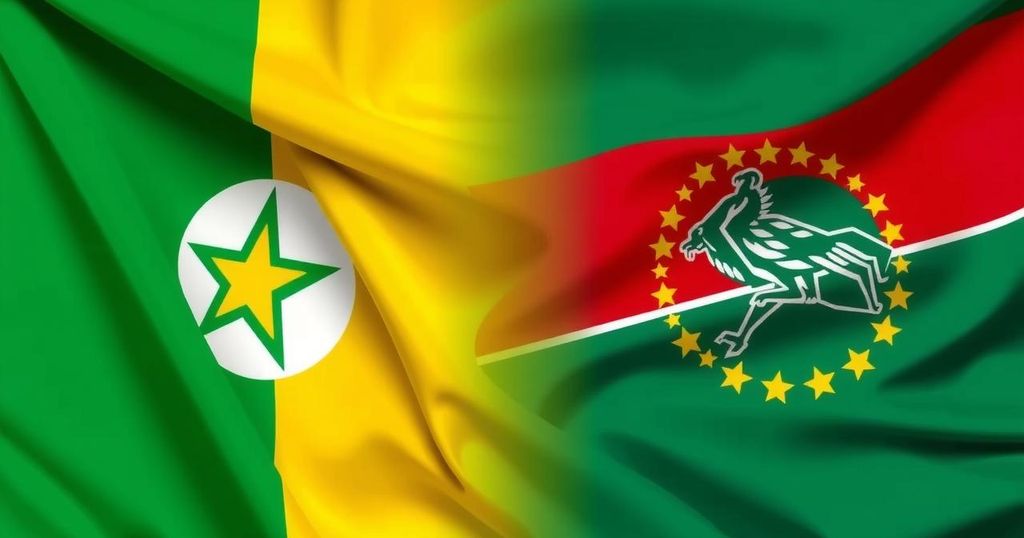Somaliland Opposition Affirms Support for Ethiopia Partnership Amid Calls for Transparency
Somaliland’s opposition party, Waddani, endorses the regional relationship with Ethiopia, emphasizing mutual benefits and the necessity for transparency regarding the MoU signed between both parties. They express confidence in Ethiopia’s intentions and argue for the legitimacy of Somaliland engaging in international agreements, while also addressing Somalia’s concerns over the potential implications of such collaborations.
In a recent statement, the opposition party in Somaliland has expressed its support for the burgeoning relationship between Somaliland and Ethiopia, citing the longstanding mutual benefits derived from their collaboration. Mohamed Abdullahi Omar, a representative of the Waddani party, conveyed that while they endorse this partnership, they call for transparency regarding the Memorandum of Understanding (MoU) signed by the two regions. Omar criticized the administration of President Musa Bihi Abdi for withholding the details of the MoU from both the opposition and the parliament, remarking, “Unfortunately, the current Somaliland administration has not shared the details of the MoU with the opposition nor the parliament, yet we are the majority in the parliament.” He emphasized that once the details are made available, the opposition will formulate their position based on the national interests of Somaliland and the principles of good neighborly relations. The Waddani official affirmed confidence in Ethiopia’s sincerity towards Somaliland, highlighting that the relationship is vital for collaboration in sectors such as trade, security, and energy. Omar stated, “Our party is confident that Ethiopia is genuine in its relationship with Somaliland, and we look forward to further cooperation in many areas, including trade, security, and energy.” He also noted the historical precedent for Somaliland engaging in agreements with other nations, mentioning the United Arab Emirates as an example. Omar indicated that Somaliland could significantly benefit from Ethiopia utilizing the port of Berbera, stressing that Somalia should prioritize internal security issues, particularly addressing the threat posed by Al-Shabaab and other domestic challenges. He concluded by asserting that Ethiopia’s interest in accessing the port is legitimate, and under the current leadership, ties between the two regions are expected to strengthen further. Somalia, on the other hand, has raised concerns over perceived annexation intentions by Ethiopia, arguing that Ethiopia’s access to the Red Sea should be retracted prior to any further discussions. Overall, while the Waddani party supports the cooperation with Ethiopia, they insist on the importance of transparency and legislative oversight in international agreements.
The article discusses the political dynamics between Somaliland, a self-declared independent region, and Ethiopia, particularly focusing on their recent cooperation through a signed agreement. It incorporates the views of the Waddani opposition party, which backs the relationship yet demands transparency regarding the specifics of the MoU due to concerns over governance and oversight. The article reflects on regional geopolitical tensions, including Somalia’s apprehension regarding potential territorial implications of the agreement, as well as suggesting that Somaliland’s historical context of engaging with international partners adds to its legitimacy in this matter.
In summary, the Waddani opposition party expresses strong support for the partnership between Somaliland and Ethiopia, emphasizing the need for transparency regarding the signed MoU. While acknowledging the benefits of this relationship, the party insists that details must be disclosed to ensure legislative accountability. They view Ethiopia’s interest in using the port of Berbera as advantageous for Somaliland and underscore the necessity for Somalia to address its internal issues rather than focusing on external agreements.
Original Source: www.garoweonline.com




Post Comment